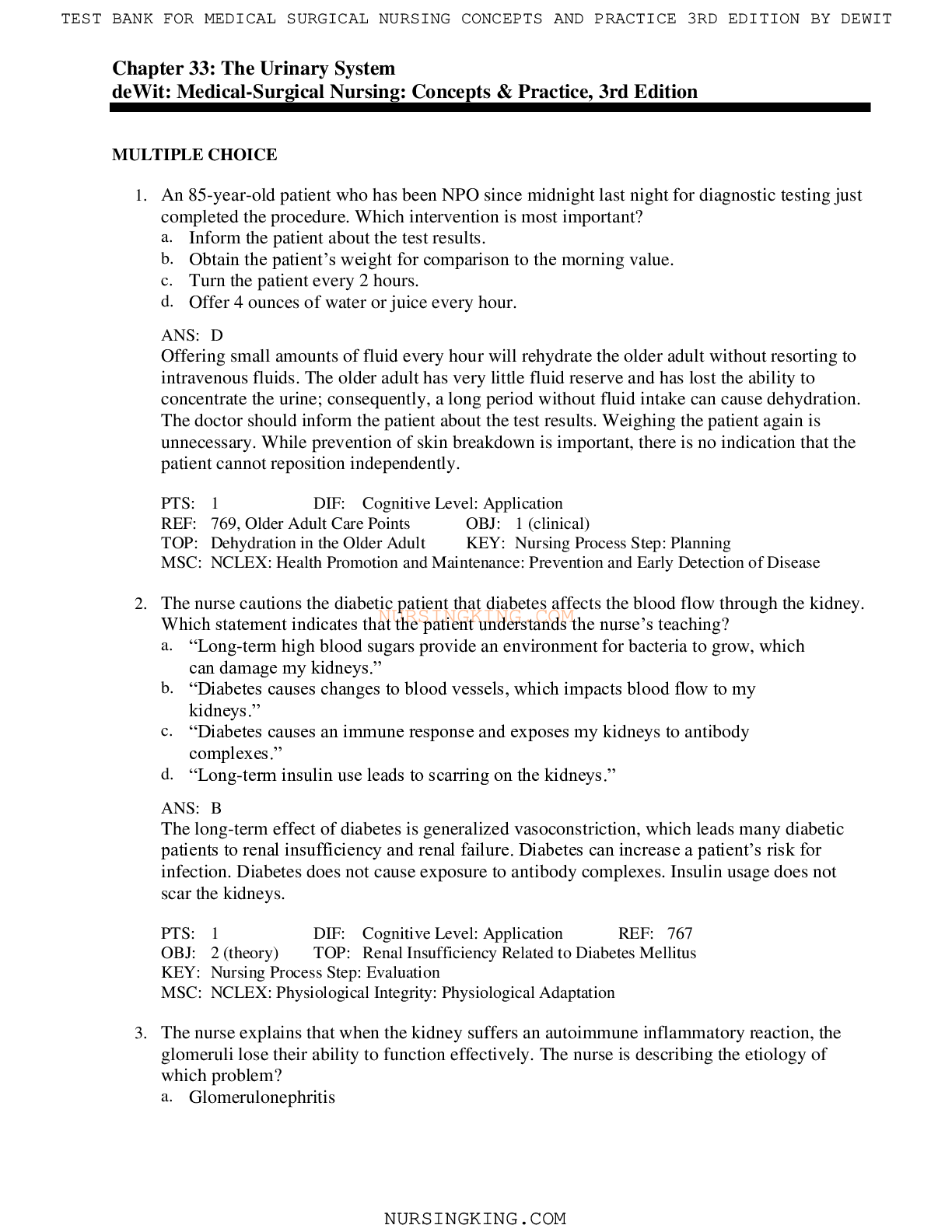Chapter 33: The Urinary System
Course
Project Management
Subject
Chemistry
Category
Questions and Answers
Pages
12
Uploaded By
ATIPROS
Preview 4 out of 12 Pages


Download all 12 pages for $ 7.00
Reviews (0)
$7.00
